~Russia illegally detains 25,000 Kremlin prisoners
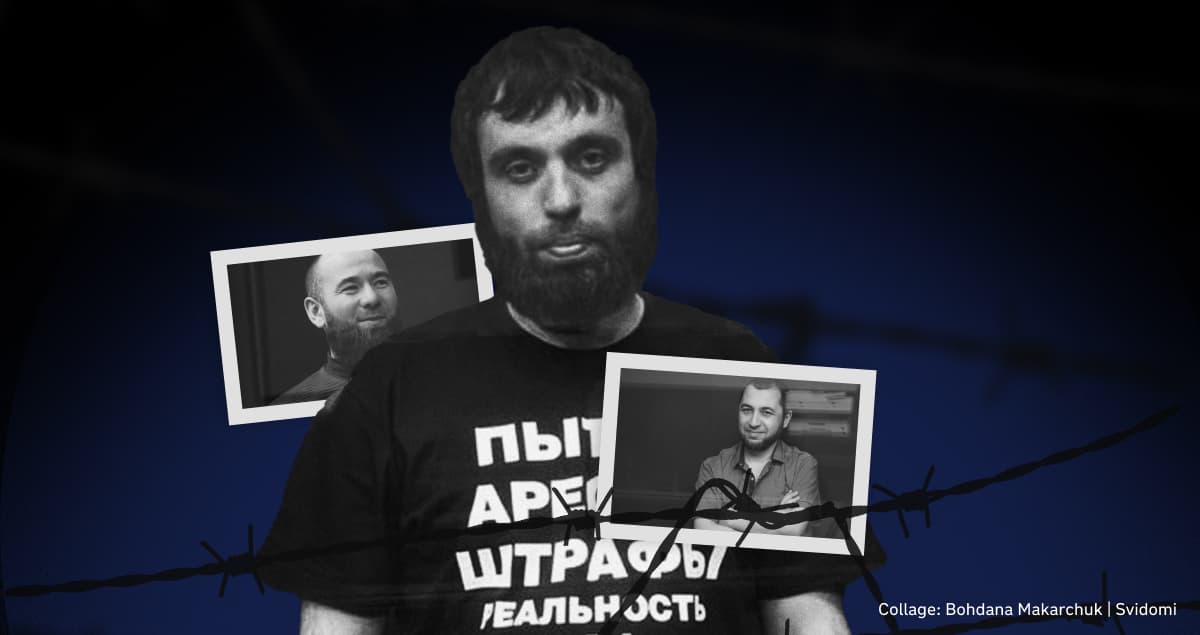
According to the Ukrainian Parliament Commissioner for Human Rights, Dmytro Lubinets, this is the number of civilians abducted by the Russian Federation.
The ZMINA Human Rights Centre has found that at least 21 prisoners require urgent medical care and may die unless they receive it.
During the full-scale invasion, the National Police began investigating the enforced disappearance of 8,800 people.
Russian Children's Ombudsman Maria Lvova-Belova claims Russia has illegally abducted over 700,000 children from Ukraine.
The Media Initiative for Human Rights has identified about one hundred places where abducted civilians are held.
The Mission of the President of Ukraine in the Autonomous Republic of Crimea (Qırım) confirms 217 illegally imprisoned Ukrainian citizens, 131 of whom are Qırımtatarlar.
During the full-scale war, 3,767 Ukrainian citizens, including 168 civilians, were returned to Ukraine.
Crimean political prisoner Osman Arifmemetov has lost 22 kilos in Russian prison
Crimean Tatar civilian journalist Osman Arifmemetov, illegally sentenced to 14 years in prison by the occupation court, has lost 22 kilos in prison in Minusinsk, Krasnoyarsk Territory, Russia.
The Crimean Solidarity reports quoting the mother of the Kremlin prisoner, Emdiie Arifmemetova.
The woman said that her son is now in a strict detention centre. He is denied the right to call his family. Only letters can be sent.
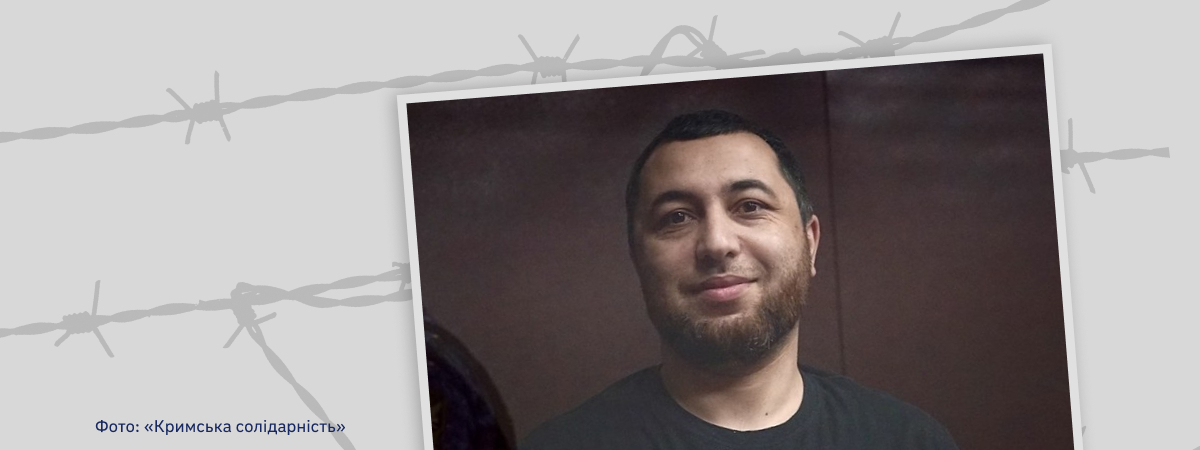
All prisoners are given pork for lunch, which Osman Arifmemetov does not eat for religious reasons. The Crimean Tatar has probably lost weight due to malnutrition.
Osman Arifmemetov was detained in Simferopol (Aqmescit) on March 27, 2019, when dozens of Crimean Tatar homes were simultaneously searched. On November 24, 2022, he was sentenced to 14 years in prison for participation in the "second Simferopol group of Hizb ut-Tahrir". In May this year, the political prisoner was transferred to a prison in Minusinsk, Krasnoyarsk Territory, Russia.
Hizb ut-Tahrir is an Islamist political party. It was designated a terrorist organisation in Russia in 2003, and its members have been prosecuted. Members are accused of 'unconstitutional activities' and attempts to create a so-called 'world caliphate'. After the occupation of Crimea (Qırım) in 2014, the occupiers extended their legislation to the peninsula. Crimean Muslims were accused of involvement with Hizb ut-Tahrir, increasing the pressure on Crimean Tatars for opposing the occupation of Crimea.
FSS detains Crimean lawyer Liudmyla Kolesnikova at her mother's funeral in Crimea and accuses her of espionage
In the temporarily occupied Crimea (Qırım), representatives of the ‘illegal Federal Security Service’ detained lawyer Liudmyla Kolesnikova. The occupation authorities accused the woman of espionage and providing financial assistance to Ukraine for the purchase of digital postage stamps.
The Crimean Human Rights Group reports referring to the letter Kolesnikova sent from the Simferopol (Aqmescit) Detention Centre No. 1.
Liudmyla Kolesnikova said that since 2022 she had been living in Ireland, where she had obtained ‘temporary protection status’. In June 2024, she came to her mother's funeral in the temporarily occupied Yalta but was detained by FSS officers at the cemetery and placed in Detention Centre No. 2.

On October 3, 2024, they opened a criminal case against Liudmyla Kolesnikova and imposed a preventive measure of detention. Before that, she had been in detention for three months. The woman wrote that she was detained ‘without hygiene items, a comb or underwear’.
According to Liudmyla, she was accused of espionage and providing financial assistance to Ukraine in the amount of 25 euros. The woman says that the criminal case under Article 275 of the Russian Criminal Code was initiated because of two NFT stamps about a ‘Russian warship’ that she had bought two years earlier for €25. She believes that the only evidence in the case is an extract from the Revolut banking app. Kolesnikova adds that she does not have a defence lawyer, and she cannot defend herself from prison.
Russian prisoner of war Oleksii Maksymov sentenced to 18 years in prison for alleged terrorism
In Russia, the Southern District Military Court in Rostov-on-Don sentenced Ukrainian prisoner of war Oleksii Maksymov to 18 years in prison for allegedly participating in a terrorist organisation and training in terrorist activities.
The human rights organisation Memorial reports.
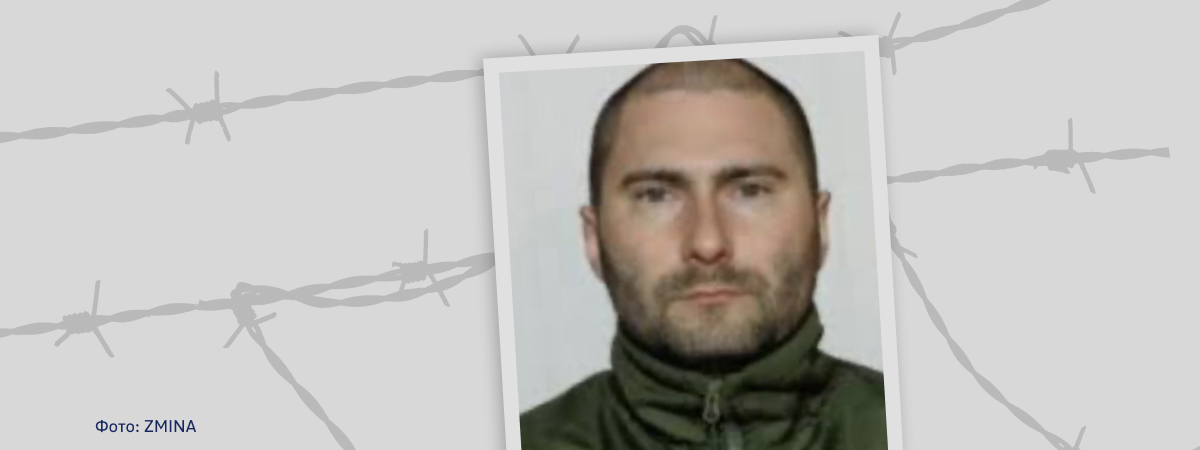
Russians detained Oleksii Maksymov in May 2022 at the Azovstal plant. The man joined Azov in 2018: he was a mechanic and repaired military vehicles.
Maksymov participated in the court hearing via video conference from Detention Centre No. 2 in Taganrog. He partially admitted his guilt. One of the ‘experts’ in the case of the Ukrainian POW was PhD in Sociology Maksym Vaskov, who allegedly told the story of the creation of Azov, its commanders, ideology, symbols, attitude to civilians in the Donetsk and Luhansk regions, etc.
Convicted Crimean Tatar political prisoner Asan Yanikov is denied communication with his family
Crimean political prisoner Asan Yanikov, sentenced to 15 years, is not allowed to contact his family. Since his transfer to the Vladimir Central Prison, Russian jailers have not allowed him to make phone calls or receive most letters.
His sister, Fatime Yanikova, informed Crimean Solidarity.
The Crimean Tatar activist has repeatedly tried to convey his complaints to the jail supervisor, Viktor Kostin. However, according to Yanikova, her brother's statements do not reach the prison authority, and Asan is not allowed to meet with Kostin. Since October last year, Yanikov has been able to call his family only twice.
Fatimeh Yanikova also said that in April this year, two policemen beat her brother, after which they reduced his bread allocation by two or three times. As a result, the political prisoner began to lose weight rapidly. Now, after Asan Yanikov was visited by a lawyer, the situation with bread and food has ‘improved’. In addition, the political prisoner has chronic problems with his digestive tract. However, currently, he does not suffer from these disorders.
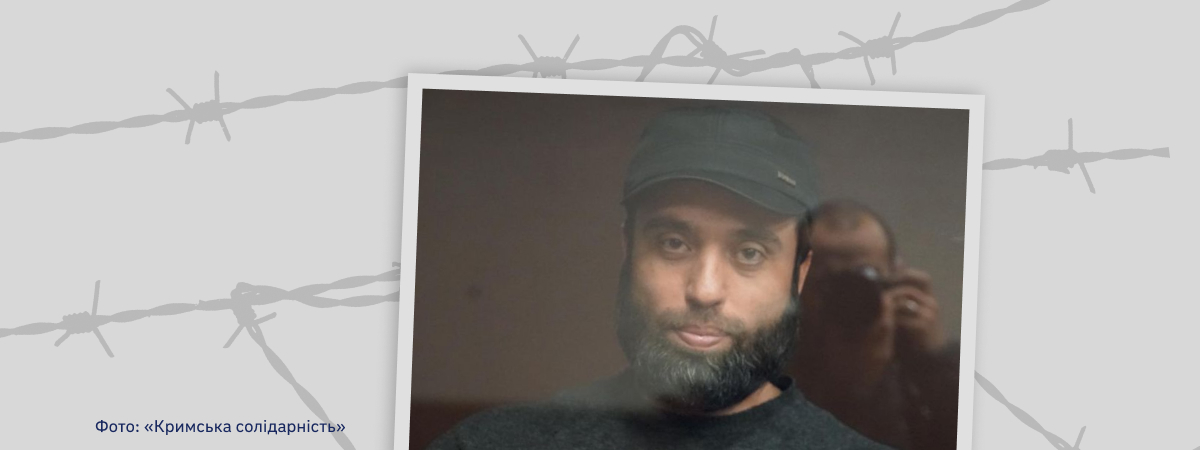
Asan Yanikov is an activist who, before his arrest, attended courts on politically motivated cases in Crimea. In 2017, he held a single picket protesting against persecution on ethnic and religious grounds. Yanikov was involved in sending parcels to political prisoners in pre-trial detention centres and was a member of Hizb ut-Tahrir.
Hizb ut-Tahrir is an Islamic political party. In Russia, in 2003, it was recognised as a terrorist organisation, and those involved in it faced persecution. The members are accused of ‘unconstitutional activities’ and attempts to create a so-called ‘world caliphate’. After the occupation of Crimea in 2014, Russians extended their legislation to the peninsula. Crimean Muslims were accused of involvement in Hizb ut-Tahrir, thus increasing pressure on Crimean Tatars for disagreeing with the occupation of Crimea (Qırım).
Melitopol ‘court’ convicts Dmytro Shainoha of ‘espionage’
A so-called ‘court’ in the part of the Zaporizhzhia region temporarily occupied by the Russian military has convicted a resident of Tokmak, Dmytro Shainoha, for alleged ‘espionage’.
The Russian Prosecutor General's Office reports.
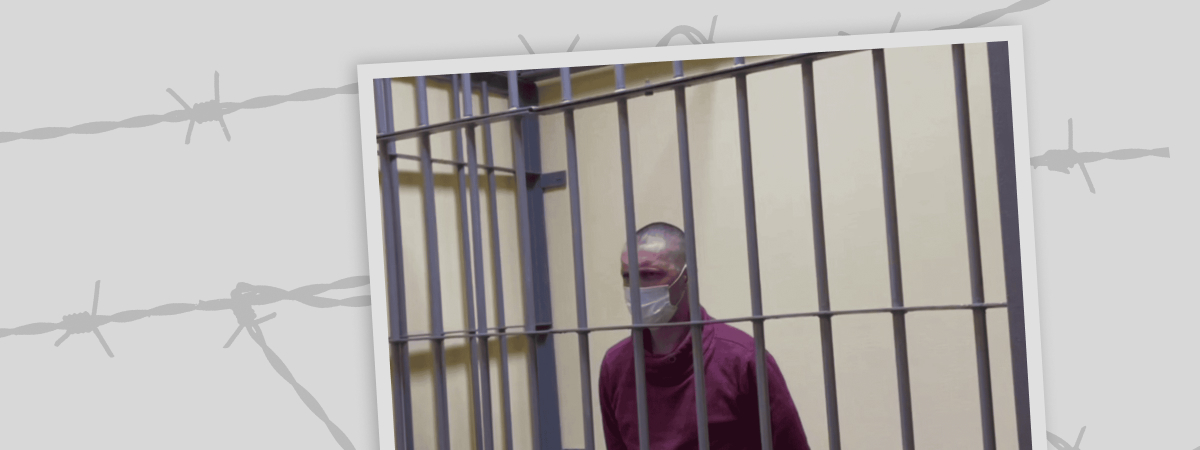
Russian special services kidnapped 41-year-old Shainoga in October 2022 in Tokmak and later transported him to Melitopol. He was accused of collecting and passing on data on the locations of equipment and personnel of Russian army units to Ukrainian special services. An illegal court sentenced the man to a maximum security colony for 12 years.
The Russians claim that from August to October 2022, Shainoha stayed in the Zaporizhzhia region, where he collected and transmitted information about the location of Russian troops and equipment to an employee of the Defence Intelligence of Ukraine via messenger. According to the Russians, this information could have been used to launch strikes.
Crimean political prisoner Emil Ziiadinov was transferred to a colony in the Arkhangelsk region
Crimean political prisoner Emil Ziiadinov, sentenced to 17 years in prison, was transferred from prison No. 2 in the Lipetsk region to penal colony No. 5 in the city of Koryazhma, Arkhangelsk region.
Crimean Solidarity civic initiative reports citing Elviie Ziiadinova, the wife of the Kremlin prisoner.
The transfer lasted two weeks and two days. On September 23, the man left the prison and contacted his wife on October 9. Emil said that he was in quarantine in penal colony No. 5.
The Crimean Tatar's wife said that immediately after his arrival in Koryazhma, he was forced to shave his beard, although Emil protested, citing the internal regulations of Russian penitentiary institutions, which allow prisoners to have a beard up to and including nine millimetres. However, the colony authorities forbade him to keep the beard.
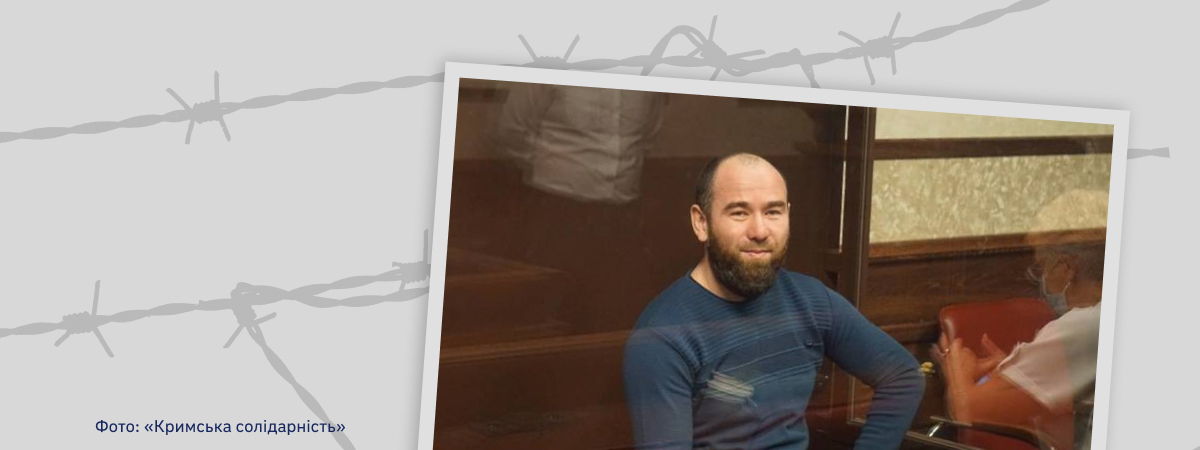
Russian security forces detained Emil Ziiadinov, a children's coach, after searches on July 7, 2020. According to the case file, the accused was not carrying weapons, explosives or ammunition, did not plan to commit a terrorist act and did not call on others to commit terrorist acts.
Nevertheless, the occupation court accused Ziiadinov of participating in the Hizb ut-Tahrir organisation and ‘preparing to seize power’. On April 19, 2022, Judge Stanislav Zhidkov of the Southern District Military Court sentenced the Crimean Tatar to 17 years imprisonment.
Hizb ut-Tahrir is an Islamic political party. In Russia, in 2003, it was recognised as a terrorist organisation, and those involved in it began to be persecuted. The members are accused of ‘unconstitutional activities’ and attempts to create a so-called ‘world caliphate’. After the occupation of Crimea in 2014, Russians extended their legislation to the peninsula. Crimean Muslims were accused of involvement in Hizb ut-Tahrir, thus increasing pressure on Crimean Tatars for disagreeing with the occupation of Crimea.
In Russia, Melitopol resident receives 16-year prison sentence for ‘terrorism’
The Southern District Military Court in Rostov-on-Don sentenced Ukrainian Maksym Vorobiov to 16 years behind bars.
The Russian prosecutor's office reports.
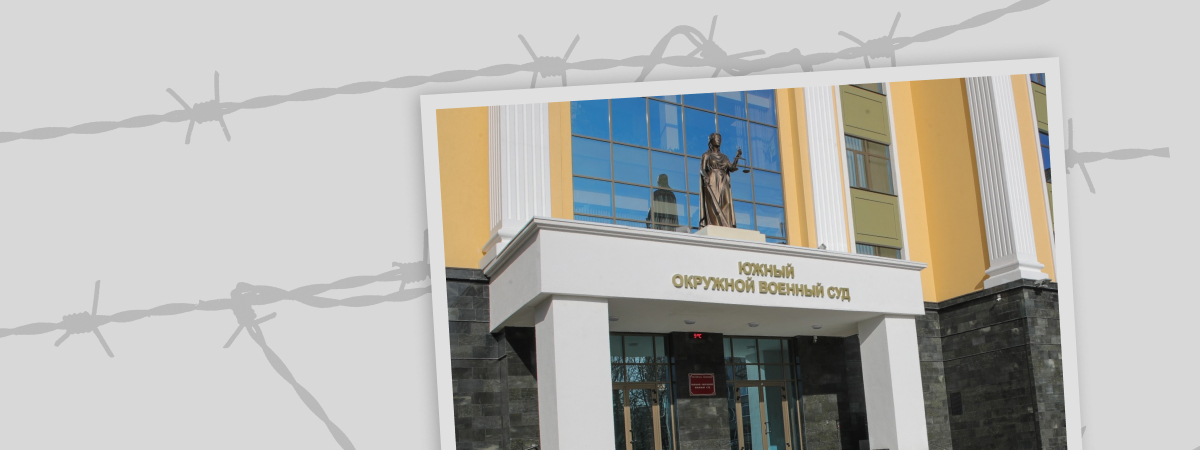
Following the Russian court's verdict, Vorobiov will serve the first three years of his sixteen-year sentence in prison and the rest of his term in a maximum security colony. In addition to imprisonment, the Ukrainian was fined half a million Russian rubles.
According to the occupation ‘court’, last year, Vorobiov allegedly became a member of a community whose task was to organise terrorist acts and sabotage in the occupied territories of the Zaporizhzhia region. He also allegedly recruited his friend Maksym Timofeiev to the organisation.
Together, they received homemade explosives used in April-June 2023 to blow up three locomotives at the Melitopol depot.


